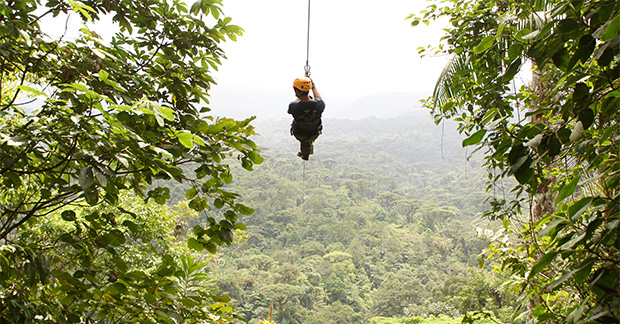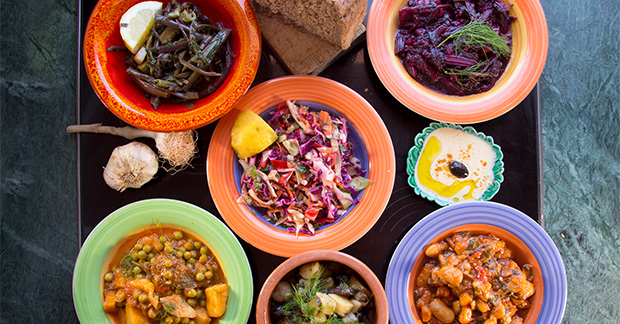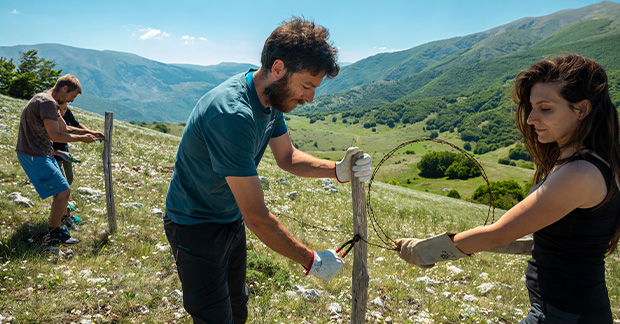You are viewing 1 of your 2 free articles
Sustainable travel: How to sell eco holidays in 2022
As eco travel and responsible tourism become more mainstream, Clare Vooght asks the experts for tips to ensure clients get the green break they’re craving
Click here to download and save as a PDF
According to Google data released late last year, 82% of people said sustainability is now more important to them than before the pandemic. And 70% more travellers sought sustainable options in 2021.
A growing number of travel companies are boosting their sustainable product to meet the rising demand for responsible trips from consumers who are increasingly environmentally savvy and for whom a simple offsetting pledge is no longer enough.
And with 41% of people telling Abta they’re more likely to book a trip with a company that has a better sustainability record, how should agents be selling to responsible travellers in 2022?
“Trips with companies that live and breathe your values enable you to literally make the world a better place, simply by going on holiday,” says Jamie Sweeting, vice-president of social enterprise and sustainability at G Adventures.
While some travellers will be set on reducing their ecological impact by not flying, others will see supporting indigenous populations or empowering local women as more important.
“Agents can play a key role in helping to match travellers’ passions with travel companies that are doing great work in those areas,” adds Sweeting.

Take no-fly trips farther
While clients who don’t want to fly might think they’re confined to the UK, France or anywhere else on the Eurostar network, that’s far from the reality.
“To meet the demand from clients for no-fly holidays, we’ve introduced Greece by train, Italy by train and will shortly launch Spain by train,” says Rachel Jelley, sales and marketing director at Sunvil.
The operator’s nine-night Greece by Rail itinerary (£1,500), for example, means travelling via Paris to Milan, with an overnight stay, followed by a picturesque train trip through Italy to Bari and an overnight ferry to Corfu. Clients can fly home, or take the train back for around £500 more.
Support local communities
“If you’re going to take a plane, of course do all you can to minimise your negative impact,” says Sweeting. “But also do everything you can to maximise your positive impact in your destination.”
As we emerge from the pandemic, making sure tourism money reaches the hands of local people is key for rebuilding local economies.
“Supporting local communities is more important than ever to our travellers, with two-thirds saying that making sure their money benefits local people is a top priority,” says Sweeting.
“It’s important for agents to emphasise how community tourism experiences actually enhance the tour and help to create amazing memories. Spending the night in a local family home and sharing a meal around their kitchen table is so special. It enhances the travellers’ experience, but also really teaches them about the local way of life.”

Serve up lower-impact vegan trips
As well as community initiatives, other well-known ways clients can lower their impact while in a destination include staying for longer and opting for eco-friendly modes of transport such as trains and cycling.
But, perhaps less obviously, choosing a more environmentally friendly diet can make a big difference too, with operators increasingly offering vegan trips for travellers seeking plant-based menus.
“Opting for local, plant-based food will significantly reduce anyone’s holiday carbon footprint,” says Tim Williamson, customer director at Responsible Travel, which added nearly 1,000 vegan trips last year.
It has seen demand for its vegan trips quadruple in the past decade. “World travel has become much more accessible to veganism. Customers will find beautiful plant-based choices in countries from Italy and Greece to India, Thailand, Jordan and many more,” says Williamson.
And vegan touring isn’t limited to wellness trips. Responsible Travel’s vegan trips to Ethiopia, where a plant-based diet has been part of life for centuries, include trekking and a visit to the medieval capital. Its vegan tours to Greece include cookery sessions with locals.
Point towards green destinations
Another great way to point clients in the right direction is getting them to places where it’s easy to be green. “Be ready to advise clients on the sustainability practices in the destination,” says Heather Magnussen, responsible travel and sustainability manager at Audley Travel.
“Agents can look at whether the destination has an effective recycling scheme in place, leads the way in wildlife conservation or uses profits from tourism to provide community support.”
From Copenhagen, where cyclists rule the roads and which aims to be the world’s first carbon-neutral capital by 2025, to Costa Rica, where ecotourism helps to fund conservation efforts, there are plenty of destinations where it’s easier for clients to make greener choices.

Talk about rewilding
Exodus has committed to rewilding 100 square metres of land per passenger. The operator’s head of sustainability, Kasia Morgan, says this is a great way to make selling sustainable trips more compelling than simply talking about reducing a trip’s carbon footprint.
“Exploring rewilded mountains in Italy, conserved corners of the rainforest in Costa Rica or lesser-known national parks in Sri Lanka will not only provide your clients with unique experiences of the wild and natural world but also contribute towards the protection and regeneration of biodiversity,” she says.
Taking the less-travelled road has long been an exciting prospect for travellers – and when it’s the sustainable option too, all the better.
Ask the expert

Joanna Reeve head of business development and partnerships, Intrepid Travel
“The words ‘sustainable’ and ‘eco-friendly’ are used very liberally these days so it’s important agents are able to recognise companies that are genuinely taking action. The good news is that with a few simple steps you can help your clients make the best choices for people and the planet.
- Look out for suppliers with a recognised certification such as Travelife or B Corp. This means they have been through a rigorous process to establish their green credentials.
- Do your research. A company you can trust will have information on their website explaining what they’re doing now and where they aim to be in future. Transparency is everything.
- Don’t be afraid to ask how a hotel or tour operator is taking steps to operate more sustainably. Do they have goals and are they reporting on their progress? Are they supporting any good causes?
- Sustainability is not only about carbon emissions – it’s about people too. A company’s recruitment policy can say a lot about them. Do they employ local people? What are their diversity and inclusion policies?”
PICTURES: Shutterstock/petrmalinak; Exodus/Bruno D’Amicis; Responsible Travel.
Read more
x.travelweekly.co.uk/articles/394544/five-of-the-best-sustainable-projects-around-the-world">Five of the best sustainable projects around the world
x.travelweekly.co.uk/destinations/sustainable-travel-how-cruise-lines-and-conservationists-are-working-together">Sustainable travel: how cruise lines and conservationists are working together
x.travelweekly.co.uk/articles/368115/the-best-eco-resorts-for-a-sustainable-holiday">The best eco-resorts for a sustainable holiday





